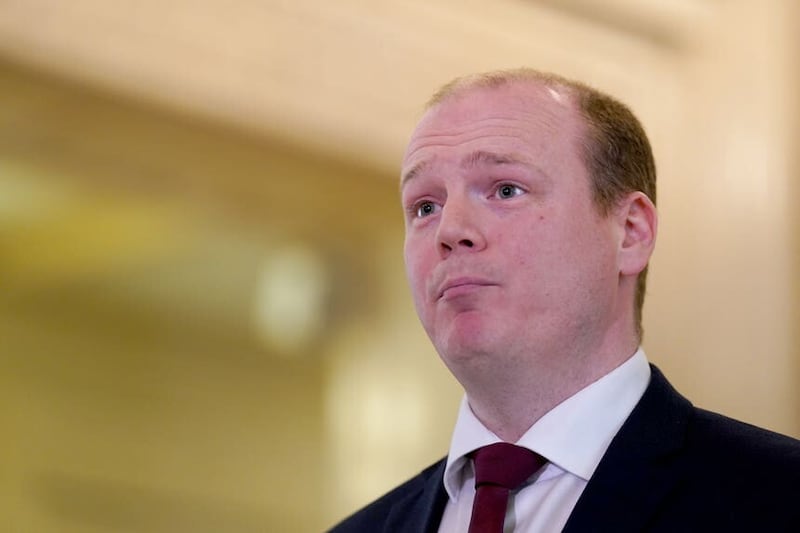If everything goes according to plan, by mid-afternoon Saturday we should know the shape of the new Northern Ireland Executive, the committee-cum-cabinet that will govern the region until the end of the mandate in 2027, notwithstanding resignations, sackings and another collapse of the institutions.
There are 10 seats in all at the executive table, with the positions of first and deputy first minister allocated on the basis of rules agreed at St Andrews, which sees the nominees chosen from the largest party in each designation (nationalist or unionist).
It’s a given that Sinn Féin’s Michelle O’Neill will be first minister, becoming the first MLA who designates as ‘nationalist’ ever to assume the role, following her party’s historic victory in the assembly election some 21 months ago.
Emma-Little Pengelly, the former Stormont junior minister who lost her Westminster seat in 2019, is widely expected to be nominated by the DUP as deputy first minister but there has been no official confirmation.
The rest of the executive positions, with the exception of the justice minister, are allocated on the basis on D’Hondt, which roughly reflects electoral support.
Accordingly, first pick goes to Sinn Féin, which has long signalled its desire to take the economy portfolio, a department controlled by the DUP since 2007. Former finance minister Conor Murphy is widely expected to switch to economy, a role in which he’s likely to be much more visible.
The DUP is entitled to the second pick but this is where things start to get complicated, as numerous permutations follow, depending on what the party opts for and which parties choose to join the executive.
Ulster Unionist leader Doug Beattie confirmed on Friday that his party would be joining the executive, while Alliance is keeping its powder dry and has yet to signal whether it will enter the executive or join the SDLP on the opposition benches – though most assume it’ll be the former.

Finance is traditionally regarded as a key, prestigious department and there’s every likelihood that DUP MLA Gordon Lyons will take charge of Stormont’s purse strings. However, the party may also have its eye on both education and even health, the latter widely seen as something of a poison chalice, especially with health service reform looming.
If Alliance isn’t allocated justice in an agreement brokered with its two larger rivals, meaning its preferred candidate for the job Naomi Long is overlooked, the party will be entitled to the third pick, which is likely to be either health or education, with Paula Bradshaw linked to the former and Andrew Muir mooted as the latter minister.
But assuming the DUP takes finance as its second pick and Alliance takes justice, we’re back with Sinn Féin, which in recent years has opted for communities, often described as “the department for everything else” as it covers sectors as diverse as welfare and culture.
Previous communities minister Deirdre Hargey appears the most likely candidate for this role, though the party may not necessarily choose it this stage of the process. Either education or infrastructure may prove a more attractive option, with any one of a handful of MLAs, including John O’Dowd or Liz Kimmins, potentially stepping up.
Former first minister Paul Givan has been linked with the health portfolio but this may well be posturing or subterfuge, as at this stage there are departments on offer that carry much less political risk.
When Sinn Féin and DUP have selected two ministers each, its the turn of the Ulster Unionist Party to get its first and only pick. Talk on the hill yesterday was that the widely-popular Robin Swann may return to health, even though his previous stint in it did the party few electoral favours.
Sinn Féin then gets a third and final pick before Alliance gets whatever’s left. Its nominee will be dependent on what portfolios are still available. If neither health or education is available, there’s a possibility that South Antrim MLA John Blair will be appointed agriculture and environment minister, an appointment that would likely see a greater focus on the oft-neglected environment element.

